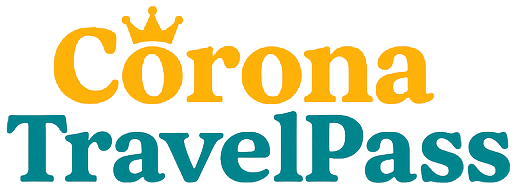Tips and Resources for Healthcare Abroad
Traveling internationally? Don’t let health concerns derail your adventures. This guide provides essential steps to ensure a safe and healthy trip, from pre-trip consultations with your doctor and packing a comprehensive health kit, to understanding health insurance coverage and navigating healthcare systems abroad. Learn how to locate quality healthcare providers, manage medical expenses, and access valuable resources like the CDC and WHO. Prepare for a worry-free journey by prioritizing your health today – read on to discover how.
Important information

- Consult your doctor and discuss vaccinations and medications needed for your trip.
- Get travel insurance with comprehensive medical coverage, including emergency evacuation and repatriation.
- Research your destination’s healthcare system, including costs, accepted insurance, and the availability of English-speaking doctors. The CDC and WHO are great resources.
- Pack a travel health kit with prescriptions, over-the-counter medications, and first-aid supplies. Carry essential medications in your carry-on bag.
- Keep copies of your prescription, doctor’s note explaining your medical needs, insurance card, and emergency contacts easily accessible.
Understanding Health Care Needs During Travel
Before embarking on your international journey, prioritize your health by consulting your doctor. Discuss necessary vaccinations and medications to safeguard yourself against preventable illnesses. Prepare a comprehensive travel health kit equipped with essential prescriptions, over-the-counter remedies, and basic first-aid supplies. Verify your health insurance coverage for international travel and consider supplemental insurance if needed.
Pre-Trip Health Preparations
- Consult your doctor about necessary vaccinations and medications.
- Assemble a travel health kit with prescriptions, over-the-counter remedies, and first-aid supplies.
- Confirm your health insurance coverage and consider supplemental insurance.
Destination Healthcare Information
- Research healthcare facilities at your destination and save their contact information.
- Ensure easy access to your medical history and important documents.
- Familiarize yourself with the local healthcare system and emergency numbers.
Travel health insurance is highly recommended. Carry your policy information and understand the claims process.
Prepare a list of your medications, including generic names.
Pack a basic first-aid kit. This will help with minor injuries and ailments.
Stay informed about health advisories and required vaccinations for your destination. Utilize resources like travel health websites.
Consult healthcare professionals before your trip. They can provide personalized advice on necessary precautions and medications.
Use helpful resources like travel health websites for information on vaccinations, health advisories, and local healthcare facilities. Mobile health apps offer tools to track your health and access guidance during emergencies. Consider online forums and communities for valuable insights and personal experiences regarding healthcare in specific countries.
Planning Health Care for Your Trip
Before traveling, take these steps to ensure your healthcare needs are met:
Research healthcare providers at your destination. Locate reputable doctors, hospitals, clinics, and international medical assistance companies. Consider their specialties, accreditations, and language compatibility.
Review your insurance coverage. Carefully examine your current health insurance policy’s international coverage, paying close attention to its limitations.
Consider supplemental travel insurance. If necessary, acquire travel insurance to cover potential medical emergencies, evacuations, and repatriation.
Preparing for Health Care Costs Abroad
Planning a trip abroad? Don’t forget to prepare for potential medical expenses. Unexpected health issues can arise, so researching the local healthcare system is crucial. Protect yourself from financial burdens by investing in travel insurance with comprehensive medical coverage. Understanding your responsibilities and planning ahead will contribute to a healthier and worry-free trip.
Research the local healthcare system. Find out about the quality of care, the costs, and whether your insurance will be accepted.
Invest in travel insurance with comprehensive medical coverage. This will protect you from unexpected medical expenses.
Understand your responsibilities. Know what your insurance covers and what you will be responsible for paying.
Buying Additional Travel Insurance
Protect yourself from high medical costs abroad with travel health insurance, especially if your domestic plan doesn’t cover international travel. A comprehensive policy covers emergencies, hospital stays, and medical evacuations. Secure travel health insurance before your trip to ensure you’re protected.
Insurance Considerations for Travelers
Planning a trip abroad? Don’t forget to review your health insurance policy. Check if it provides coverage outside your home country. If not, purchasing travel health insurance is a wise decision. A comprehensive policy should cover unexpected medical emergencies, hospital stays, and even medical evacuation. When comparing plans, pay close attention to coverage limits, deductibles, and exclusions. Choose the plan that best suits your trip and destination. Before your departure, contact your insurer to understand the coverage details and claims process. Keep your insurance card, policy information, and emergency contacts readily available during your travels.
Review your health insurance policy to check if it provides coverage outside your home country.
Purchase travel health insurance if your current policy doesn’t offer international coverage. Look for a comprehensive policy that covers unexpected medical emergencies, hospital stays, and medical evacuation.
Compare plans carefully, paying close attention to coverage limits, deductibles, and exclusions. Select the plan that best suits your trip and destination.
Contact your insurer before you leave to clarify coverage details and understand the claims process.
Keep your insurance card, policy information, and emergency contact information readily accessible during your travels.
Checking Insurance Coverage Abroad
Planning a trip abroad? Don’t forget to review your insurance policy. Contact your provider to confirm your international coverage and clarify what medical services and treatments are included. Understanding your policy limits, such as exclusions and maximum coverage amounts, will help prevent unexpected medical bills and protect you from financial strain should you become ill or injured overseas. Here’s a checklist to ensure you’re adequately covered:
- Contact your insurance provider: confirm your policy’s international coverage and understand what medical expenses are covered,
- Review policy details: understand coverage limits, exclusions, and the maximum amount your policy will pay,
- Consider supplemental insurance: if your existing policy offers limited international coverage, consider purchasing supplemental travel insurance for enhanced protection.
Contacting Your Travel Insurance Provider
Traveling abroad and need medical assistance? Contact your travel insurance provider immediately. They are crucial for navigating medical care in a foreign country. Confirm your policy’s coverage details and claim procedures. Your provider can locate appropriate medical facilities and assist with billing, whether through direct payment or reimbursements. Get the help you need without delay. Here’s what you should do:
Contact your travel insurance provider immediately. They are your primary resource for medical assistance abroad.
Confirm your policy’s coverage details and claim procedures. Understanding your coverage is essential for a smooth process.
Your provider can locate appropriate medical facilities. They can direct you to quality care based on your needs and location.
Your provider can assist with billing. They can handle direct payments or guide you through the reimbursement process.
Finding and Accessing Health Care Providers Abroad
Planning medical care overseas requires careful preparation. Begin by researching hospitals and clinics online. The Joint Commission International (JCI) accredits many facilities, and their list is a great resource. Your local embassy or consulate can also provide recommendations.
Finding English-Speaking Physicians
Start your search online using physician directories. Your local embassy can also be a valuable resource. Many international hospitals employ multilingual staff. In urgent situations, translation apps can facilitate communication.
Managing Finances
Discuss and agree on prices beforehand. Public healthcare facilities tend to be more affordable. For minor issues, consider visiting a local pharmacy. Most importantly, secure travel insurance to cover unexpected medical expenses.
Identifying Quality Health Care Providers
Planning
Locating English-Speaking Health Care Providers
Finding English-speaking doctors is easy. You can use online search engines and government health websites. Check expat forums for recommendations. Your embassy or consulate can provide lists of approved healthcare facilities. Translation apps and phrasebooks can help bridge the communication gap. A bilingual friend can accompany you to appointments. Carry a translation card listing your medical conditions and allergies for effective communication with your doctor.
Use online search engines and government health websites.
Check expat forums for recommendations.
Contact your embassy or consulate for lists of approved healthcare facilities.
Use translation apps and phrasebooks to bridge the communication gap.
Ask a bilingual friend to accompany you to appointments.
Carry a translation card listing your medical conditions and allergies.
Accessing Affordable Care Abroad
Planning for affordable healthcare can be a daunting task, but with careful consideration and research, it’s achievable. Here’s a structured approach to help you navigate the process:
Assess Your Healthcare Needs
Evaluate your current health status, pre-existing conditions, and anticipated medical needs. Consider factors like age, family history, and lifestyle to estimate future healthcare expenses. This assessment will help you choose a plan that adequately covers your specific requirements.
Explore Health Insurance Options
Research different health insurance plans available in your area, including employer-sponsored plans, individual plans, and government-sponsored programs like Medicaid or Medicare if you’re eligible. Compare plan premiums, deductibles, co-pays, and out-of-pocket maximums to find the most cost-effective option.
Utilize Preventive Care
Take advantage of preventive care services covered by your insurance plan, such as annual check-ups, vaccinations, and screenings. Preventive care can help detect and manage potential health issues early on, reducing the risk of costly medical interventions later.
Consider a Health Savings Account (HSA)
If you have a high-deductible health plan, explore opening an HSA to save money for qualified medical expenses tax-free. Contributions to an HSA can lower your taxable income, and withdrawals for eligible medical expenses are tax-free, providing a significant advantage for managing healthcare costs.
Compare Prescription Drug Costs
Prescription drug costs can vary significantly. Compare prices at different pharmacies, utilize manufacturer coupons or discount programs, and consider generic alternatives when available to save money on your medications.
Budget and Save
Allocate a specific portion of your budget for healthcare expenses. Create an emergency fund to cover unexpected medical bills and consider setting aside additional savings specifically for future healthcare needs.
Maintain a Healthy Lifestyle
Prioritize a healthy lifestyle through regular exercise, a balanced diet, and stress management techniques. A healthy lifestyle can prevent or delay the onset of chronic diseases, reducing the need for expensive medical treatments in the long run.
Managing Prescription Medications and Health Supplies
Traveling with MedicationsBefore your trip, consult your doctor to ensure you have enough medication. Carry a copy of your prescription and a doctor’s note explaining your medical condition and why you need the medication. Pack your medications in their original containers inside your carry-on bag. This will protect them from loss or damage. Research the medication regulations of your destination, as some countries have restrictions.
Medications
- Consult your doctor for an adequate supply.
- Carry a prescription copy and doctor’s note.
- Pack medications in original containers in your carry-on.
- Research your destination’s medication regulations.
First-Aid Kit Essentials
- Bandages, antiseptic wipes, pain relievers.
- Anti-diarrheal medication, motion sickness remedies.
- Insect repellent, allergy medicine (if needed).
- Small scissors and tweezers (check airline regulations).
- Supplies related to pre-existing conditions.
Traveling with Prescription Medications
Always carry copies of your prescriptions, including those for glasses and contacts. This is crucial.
Packing a First Aid Kit for Travel
Pack a first aid kit with essentials like bandages, antiseptic wipes, and pain relievers. Don’t forget personal medications. Include remedies for common travel ailments such as diarrhea or motion sickness. A first aid manual can be a helpful resource.
Health Considerations and Emergency Preparedness
Unexpected medical expenses can derail your travels, so comprehensive travel insurance is crucial. Supplement this with a dedicated emergency fund. Researching typical medical costs at your destination helps budget effectively.
Meticulous record-keeping is essential. Retain all receipts, diagnoses, and detailed doctor’s reports. These documents are vital for insurance claims and invaluable for future medical consultations, providing a comprehensive history of your treatment.
Preparing for Unexpected Medical Expenses
Establish a dedicated emergency fund to cover unexpected medical expenses.
Consider a separate credit card as a backup financial safety net for medical costs.
Include potential medical evacuation expenses in your travel budget.
Research typical medical costs at your destination to ensure adequate financial preparation.
Requesting Documentation of Medical Care Received
Request itemized bills, medical reports, and prescriptions. These documents are crucial for insurance claims and will also assist your doctor back home. Retain copies of all paperwork.
Utilizing Health Care Resources and Information
Planning your trip? While travel agencies can be helpful for general tips, they aren’t the best source for health advice. Instead, rely on credible resources like travel health websites and organizations such as the CDC and WHO. Local health agencies at your destination and online expatriate forums can also offer valuable insights, including reviews of healthcare facilities.
For personalized recommendations:
- consult a travel medicine clinic,
- use a reliable mobile app.
For general guidance:
- Your country’s embassy or consulate can offer information on local healthcare systems and emergency services.
Research your destination thoroughly.
Learn emergency numbers.
Locate hospitals.
Understand the healthcare system.
Identify potential health risks.
Check required vaccinations.
Confirm insurance needs.
Travel Agencies and Health Care Information
Travel agencies can be invaluable for maintaining your health while traveling abroad. They offer several key services:
- connections to local hospitals, clinics, and pharmacies, along with information on the quality of care.
- advice on accepted insurance and language accessibility of medical staff.
- insights into local health risks, required vaccinations, and preventative measures.
Gathering Important Destination Information
Planning your trip? Don’t forget to research the healthcare system at your destination. Locate nearby hospitals, clinics, and pharmacies. Consider finding an international facility with English-speaking staff. Confirm whether your insurance is accepted at these locations. Check the CDC and WHO websites for recommended vaccinations and health advisories for your specific destination. These are invaluable resources. Contact your insurance provider to understand your international coverage. Pack copies of your insurance card and other important medical documents.
Research the healthcare system at your destination.
Locate nearby hospitals, clinics, and pharmacies.
Consider finding an international facility with English-speaking staff.
Confirm whether your insurance is accepted at these locations.
Check the CDC and WHO websites for recommended vaccinations and health advisories.
Contact your insurance provider to understand your international coverage.
Pack copies of your insurance card and other important medical documents.
Specific Tips for Students Traveling Abroad
Before traveling, research your destination’s healthcare system. Check for health advisories or warnings from reputable sources like the CDC and WHO. These organizations provide crucial details about disease outbreaks, necessary vaccinations, and essential safety measures.
Health Insurance
Confirm your health insurance coverage extends abroad. If not, consider travel health insurance. This typically covers medical emergencies, evacuations, and repatriation. Ensure any policy addresses pre-existing conditions if applicable.
Medications
Verify the legality of your medications in your destination country. Carry a copy of your prescription and a doctor’s letter explaining your medical condition and the need for the medication. Research local regulations on over-the-counter medicines.
Researching Country-Specific Health Information
Staying healthy abroad is crucial for students. Government resources like the CDC provide essential information, including health advisories, vaccination requirements, and outbreak updates. Students should also consult travel medicine specialists for personalized advice tailored to their destination and health history. Online travel forums and blogs offer valuable firsthand accounts of local healthcare experiences and recommendations for specific medical facilities.
Ensuring Adequate Health Insurance Coverage
Planning to study abroad? Double-check your health insurance policy for international coverage, as many don’t offer it. If you’re not covered, purchasing travel health insurance is essential. A comprehensive plan will protect you in emergencies, covering hospital stays and even medical evacuations. Compare various policies and their details to find the best fit for your needs. Here’s what to consider when choosing travel health insurance for studying abroad:
Coverage Length
Ensure your policy covers your entire stay abroad, from the day you leave until the day you return. If your program’s dates shift, adjust your insurance accordingly.
Medical Expenses
Look for a plan that covers doctor visits, hospital stays, emergency medical transportation, and other necessary treatments. Pay close attention to coverage limits and potential out-of-pocket expenses.
Emergency Evacuation
Confirm that your plan includes medical evacuation coverage in case you need to be transported to a different hospital or back home for treatment. This can be particularly important in remote or less developed areas.
Pre-existing Conditions
If you have pre-existing medical conditions, carefully review the policy’s terms regarding coverage. Some plans may exclude or limit coverage for these conditions, so finding a plan that meets your specific needs is crucial.
Repatriation of Remains
While a difficult topic to consider, ensure your policy covers the cost of returning your remains to your home country in the event of death abroad.
Personal Liability
Check if your policy includes personal liability coverage, which can protect you financially if you’re held responsible for accidentally injuring someone or damaging their property.
Lost Luggage or Documents
Some travel insurance plans offer coverage for lost or stolen luggage and important documents like passports. This can be valuable if you experience such mishaps during your travels.
24/7 Assistance
Choose an insurance provider that offers 24/7 emergency assistance services. Having access to support whenever you need it, regardless of time zones, is essential when dealing with unexpected medical situations abroad.
Checking the Legality of Bringing Medications
Traveling abroad requires careful preparation, especially regarding medications. Contact the embassy or consulate of your destination country to ensure your medications are legal there. Inquire about specific regulations and required documentation. Also, check for import restrictions on your medications. Carry a copy of your prescription and a doctor’s letter explaining your medical condition and the need for your medication. This will help prevent complications during your travels.

















